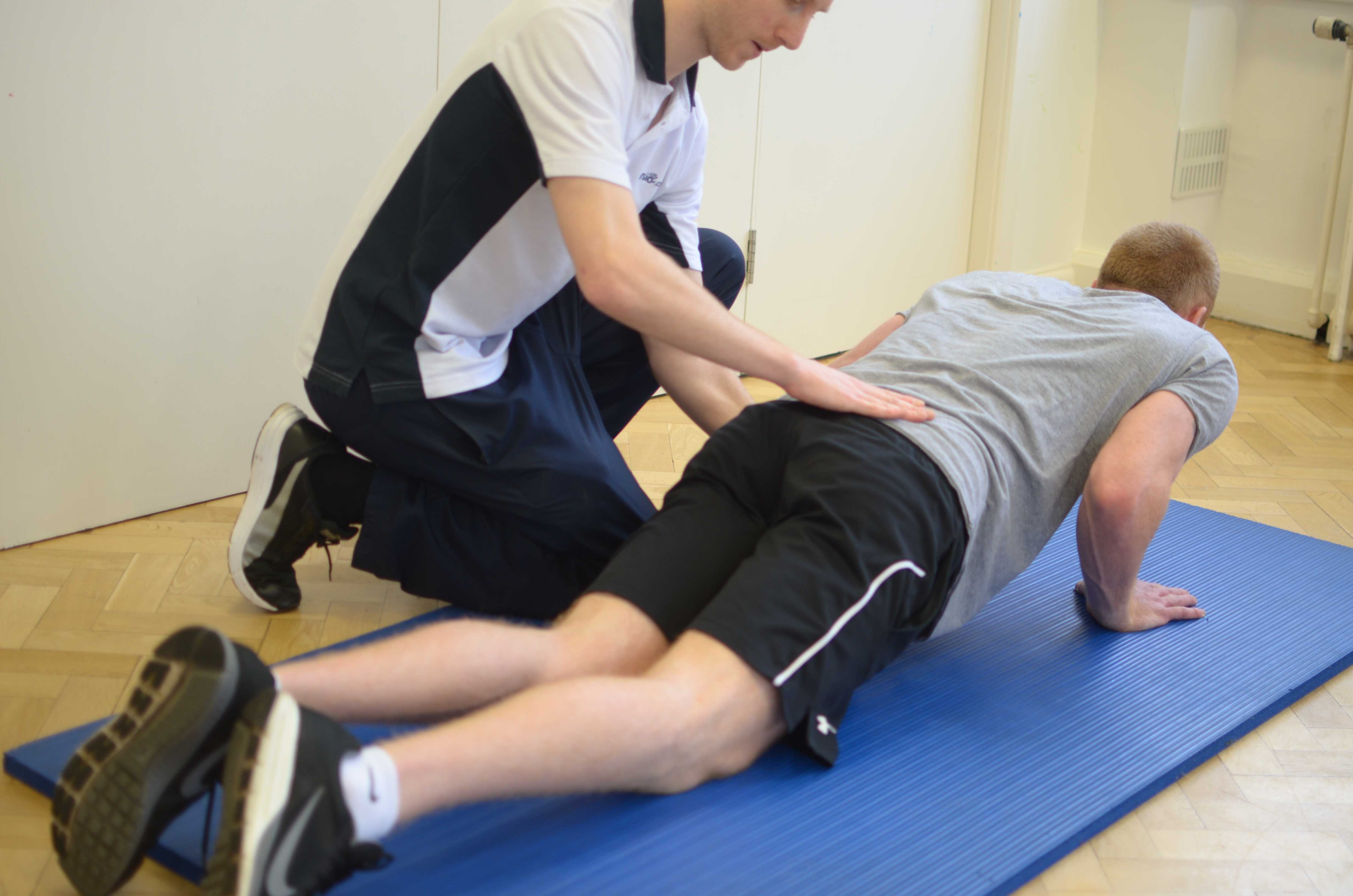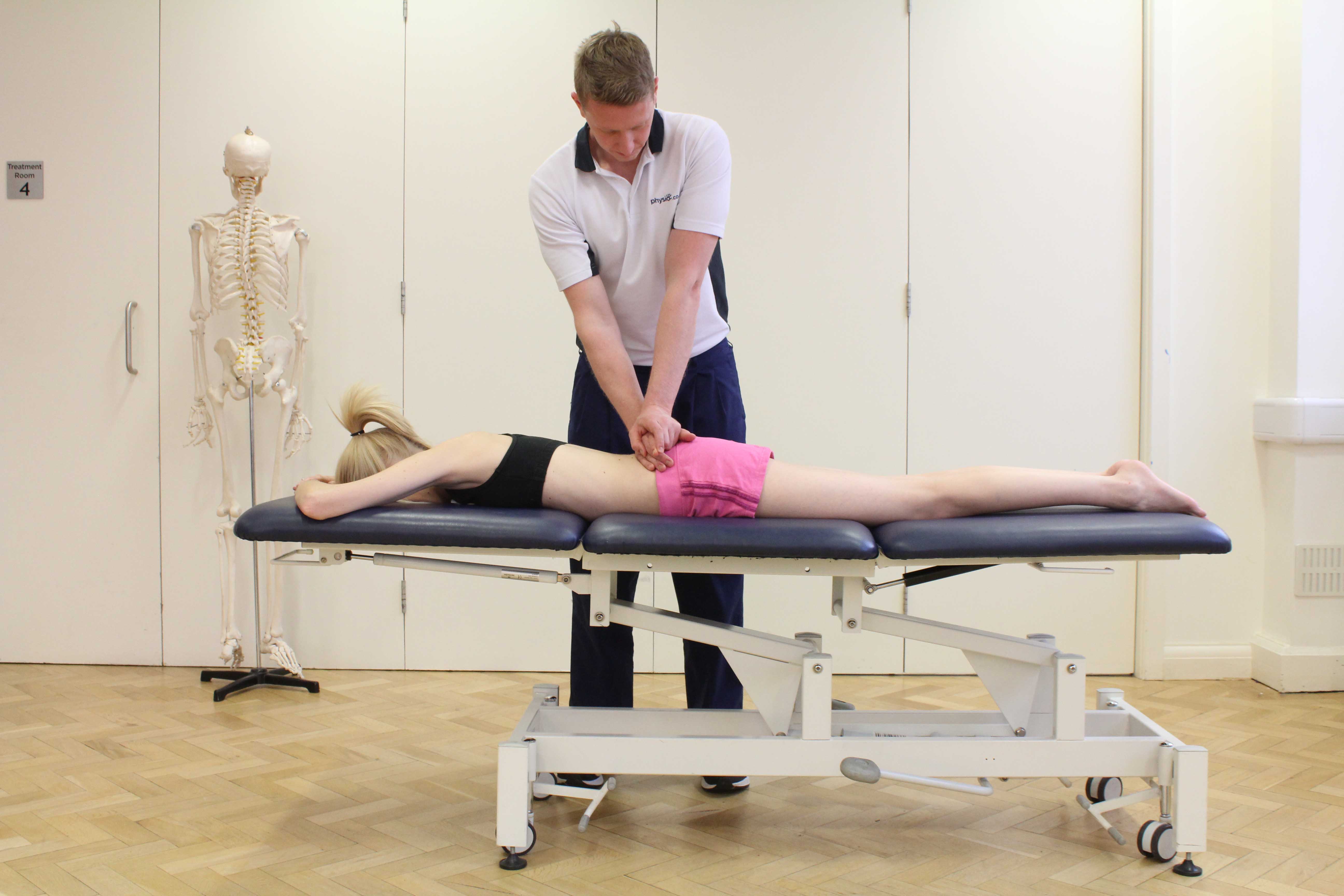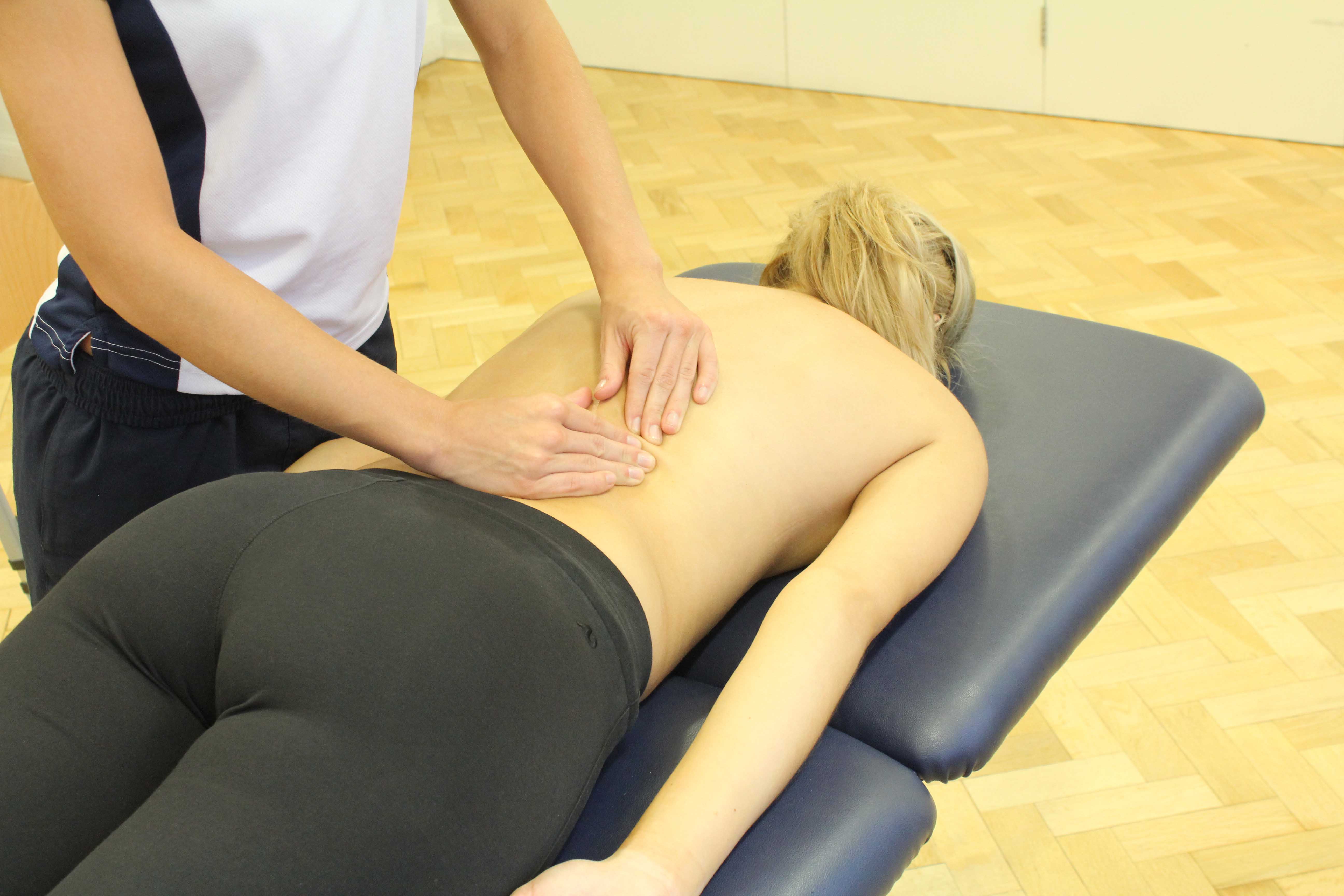The types of lumbar spinal fractures include compression, flexion, extension, rotation and distraction fractures. The most common acute fractures are compression fractures which occur when the vertebrae in the spine collapse from their normal height. This is usually due to osteoporosis.
A lumbar fracture fixation will fix the bones together to stabilise the spine and relieve pressure on the spinal cord and nerves.
Surgery and earlier physiotherapy can optimise your rehabilitation after a lumbar fracture by aiding your recovery and getting you back to your normal routine. Indication for surgery will depend on the type of fracture and the level of injury.
A lumbar fracture can result in damage to the spinal cord causingmuscle weakness, loss of sensation and reduced functional ability with everyday tasks. At Physio.co.uk, we offer physiotherapy for spinal cord injuries.
 Above: Lower back toning and strengthening exercises
Above: Lower back toning and strengthening exercisesPhysiotherapy following a thoracic fracture fixation
Physiotherapy plays a significant role in the recovery following lumbar spinal surgery. Physiotherapy treatment should commence as soon as possible following your surgery for the best possible outcome. Our physiotherapists at Physio.co.uk are experienced at treating the symptoms following lumbar surgery which may include:
- Pain in the lower back, buttocks or legs
- Swelling of the soft tissue in the surrounding the lumbar spine
- Reduced range of movement in the lower back
- Reduced muscle strength in the paraspinal and abdominal muscles
- Difficulty with everyday and recreational activities
 Above: Mobilisations of the vertebrea in the lower back
Above: Mobilisations of the vertebrea in the lower backPhysiotherapy treatment at Physio.co.uk will maximise your potential with the activities important to you by improving your range of movement, muscle strength, general fitness and function. Physiotherapy treatment will include:
- Ice and ultrasound in the acute stage to reduce pain
- Advice about positioning when sleeping and sitting to relieve pressure from the affected area and increase comfort.
- Soft tissue massage to encourage healing and reduce pain.
- Stretching exercises to lengthen tight muscles and increase flexibility.
- Mobilising exercises to help restore range of movement
- Regular training of the paraspinal and abdominal muscles to increase strength and maximise the stability of the lumbar spine.
- Ergonomic assessments to assist the way you move at work or at home and increase confidence with bending, straightening and rotating the lower back.
- Support and advice on regular low impact aerobic exercises such as walking and stationary cycling
 Above: Rolloing soft tissue massage of the muscle and connective tissues in the lower back
Above: Rolloing soft tissue massage of the muscle and connective tissues in the lower backYour physiotherapist at Physio.co.uk will support you through a progressive exercise programme tailored to your needs which will enable you to return a normal lifestyle with confidence as soon as possible.
Call Physio.co.uk now on 0330 088 7800 for more information or to book an appointment please contact us.

 0330 088 7800
0330 088 7800


































